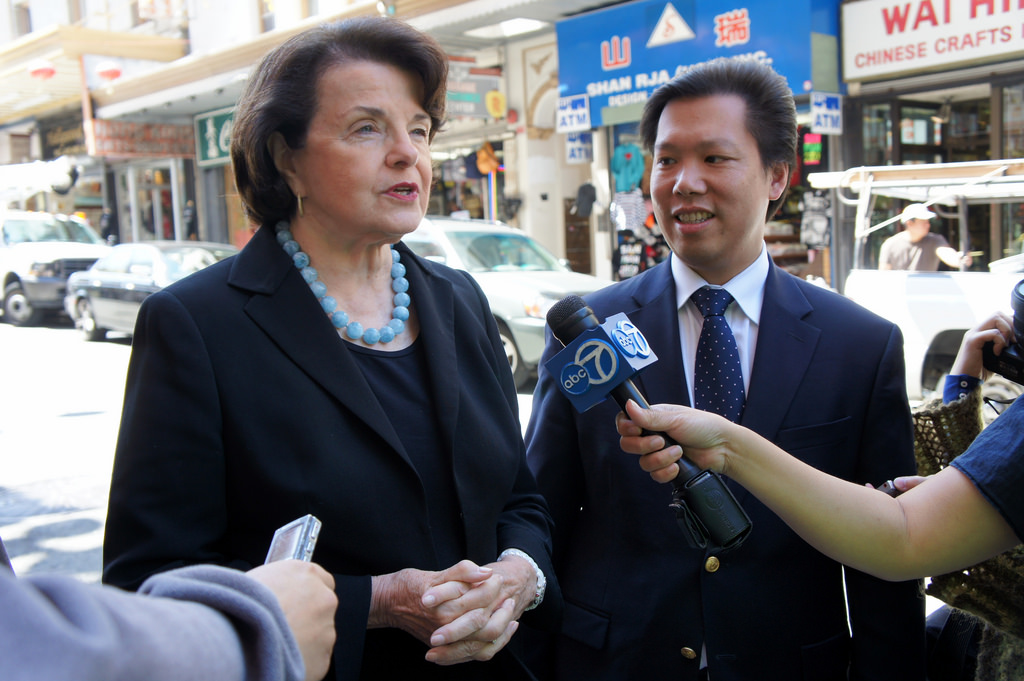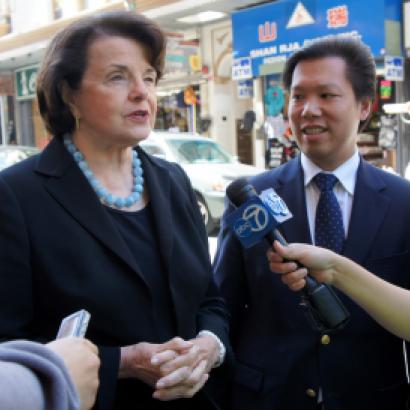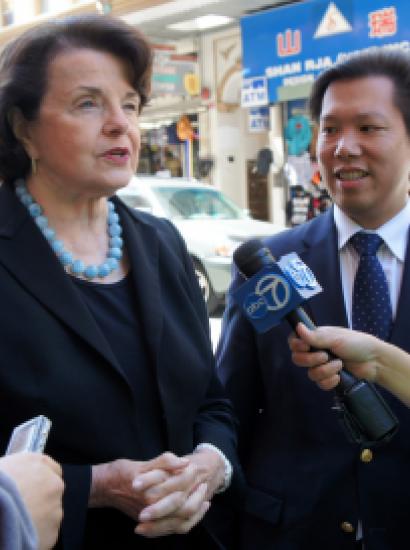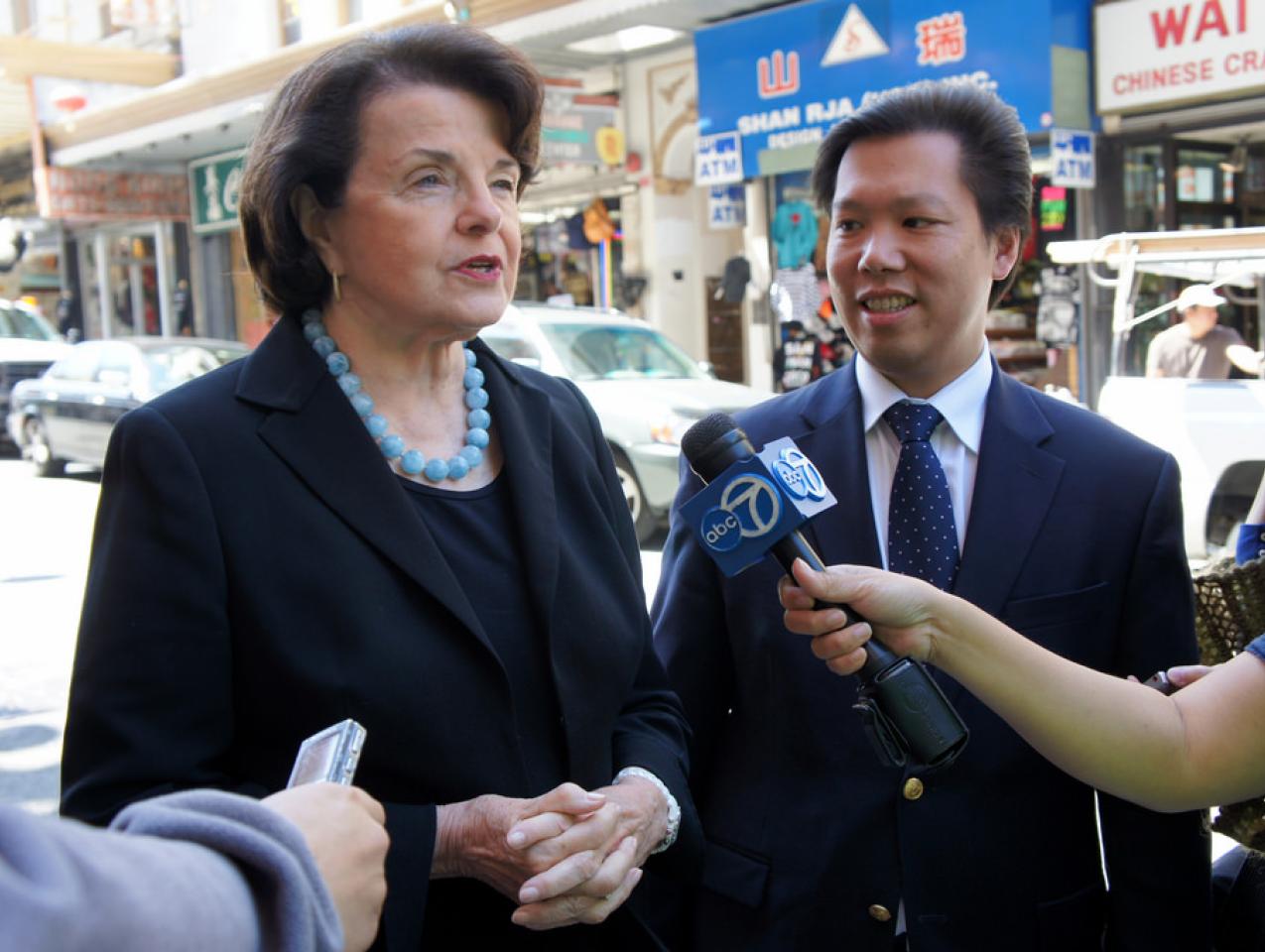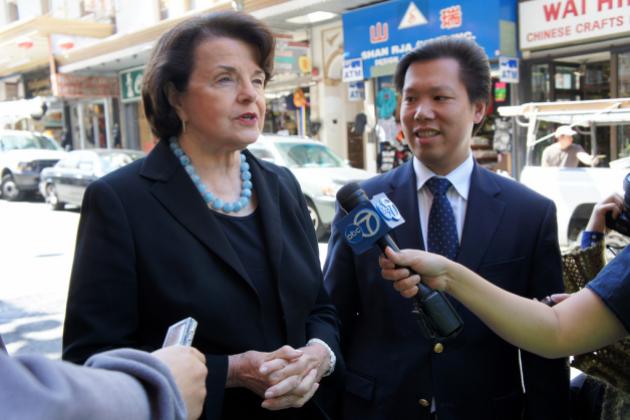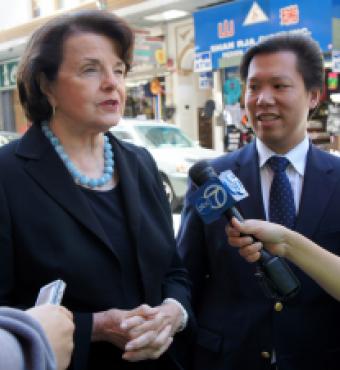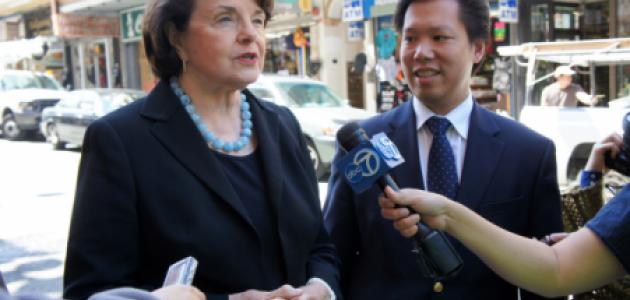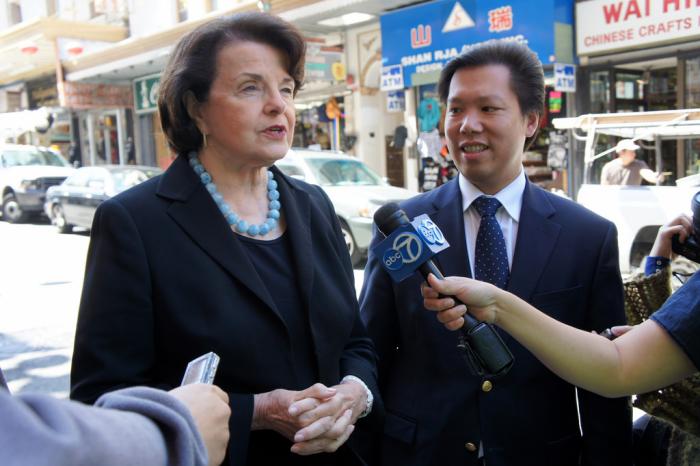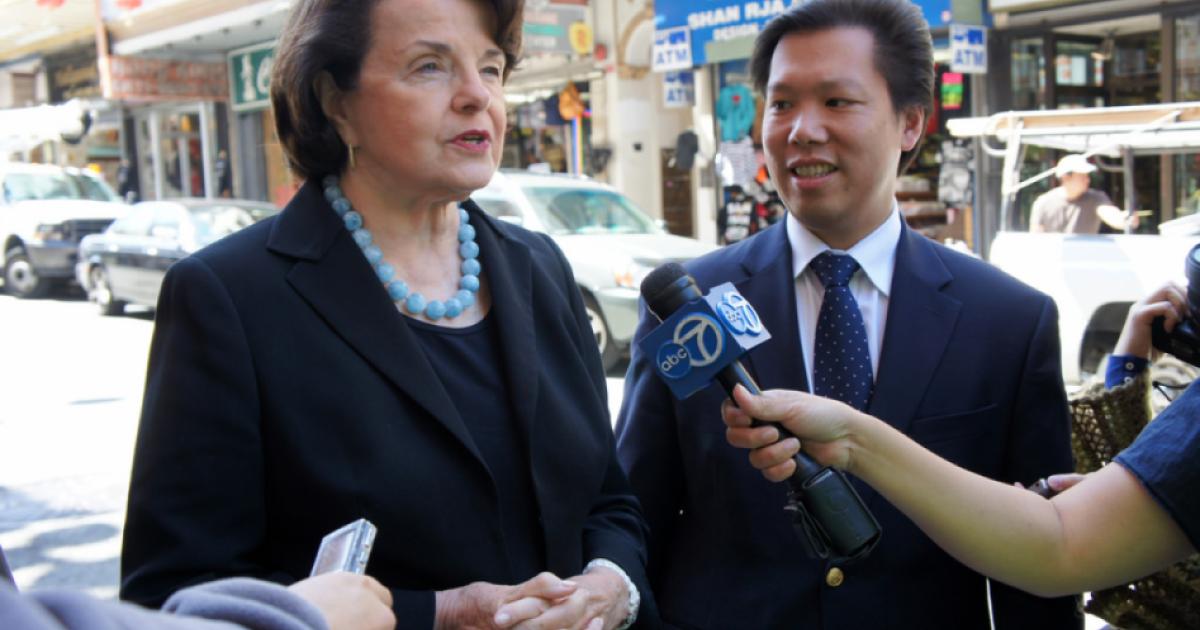- California
Now that congresswoman Barbara Lee has formally declared her Senate candidacy, California now has no less than three Democratic members of the U.S. House of Representatives looking to succeed Senator Dianne Feinstein, who’s officially retiring after the November 2024 election.
Feinstein’s departure will mark the end of an era in California politics. It was three decades ago that she and Barbara Boxer took over the Golden State’s two Senate seats in Washington in “the year of the woman”—the first time a state’s two seats were held exclusively by female senators (California being the only state to make that claim), which held until Kamala Harris departed the Senate for the vice presidency.
But Feinstein’s exit also opens the door to something California hasn’t seen since her first Senate victory back in 1992: a competitive primary lacking a clear frontrunner, plus a possible descent into some ugly politics driven along gender lines.
Why such cynicism? It’s stories like this, suggesting that Schiff can expect rough treatment from some Democratic women’s groups and progressive activists despite his past effort to bring the Trump presidency to a premature end. Schiff’s apparent problem as a potential successor to Feinstein: he possesses the wrong set of chromosomes, even though he does benefit from the support of former House speaker Nancy Pelosi.
Were it not for the difference in gender, California primary voters would be looking at three House Democrats who different more in their respective styles than in their policy substance.
All three see the world similarly with regard to matters of greatest concern to the progressive cause (abortion, same-sex marriage, labor). Yet each took a different path to notoriety (and frequent appearances on MSNBC): Lee as the only member of the House to vote against the authorization of military force in Afghanistan after the 9/11 attacks; Porter thumbing her nose (and extending a middle finger) at her Republicans colleagues (she made it a point to be seen reading a copy of The Subtle Art of Not Giving A F---) while Republicans squabbled over the choice of a new House speaker; Schiff as the lead prosecutor of Trump’s first impeachment.
This wasn’t the case the last time Californians were asked how to fill a soon-to-be vacant Senate seat. In that election, the choice was then state attorney general Kamala Harris and the more moderate congresswoman Loretta Sanchez (seen as more “centrist,” in part for her views on gun ownership).
So how will the 2024 contest shake out? Civility is a good place to start. Porter, for example, refuses to take donations from lobbyists and corporate political action committees—unlike Schiff, whose previous PAC contributions have made him a prodigious fundraiser (though Porter raised more than any other House Democrat during the 2022 election, and Schiff claims his days of PAC money are over). Should Porter call Schiff’s character into question, don’t be surprised if past stories of Porter’s reputation as an unpleasant boss suddenly materialize.
As for Lee, both Porter and Schiff could chip away at her foreign policy acumen (if this race were in Florida, her long-term admiration of the late Fidel Castro would be problematic). And it’s worth noting that, within hours of the congresswoman’s announcement, this story popped up on Fox News’ website pointing out her past claims that a pair of convicted murderers were I fact be victims of government-led conspiracies. But any criticism of Lee, who may up as the only prominent minority candidate in field, brings with it the risk of racial polarization.
Of course, the problem with dredging up such topics as fundraising prowess and Cuban-brand communism have little to do with California’s most pressing needs and concerns—certainly not for a voter looking for solutions to such thorny problems as conflicts abroad and prosperity at home.
In that regard, what California’s Senate primary calls for is a fourth Democratic candidate (I’m going to rule out any Republican aspirant,s given both the party’s miserable track record—a GOP nominee last won an open Senate seat back in 1982—and the underwhelming choices of Republican names currently being floated (those would include state senator Brian Dahle and constitutional attorney Mark Meuser, neither of whom managed to surpass 42.1% in their respective runs for governor and US senator last fall).
Specifically, what would benefit the Golden State’s electorate is a California Democrat who might offer a “hybrid” candidacy—Center-Left of social issues, but Center-Right on pocketbook issues.
In fact, such a model exists—er, existed—in the person of the late Alan Cranston, who served four terms in the US Senate before stepping down in 1992 (with Boxer, not Feinstein, being his replacement for the next 24 years).
Yes, this would be the same Alan Cranston who struck decidedly liberal tones when it came to the prosecution the Cold War (“I will seek, first of all, a mutual and verifiable freeze on the production, testing, and deployment of nuclear weapons,” Cranston declared in the kickoff for what would turn out to be a failed presidential run in 1984. “I will propose that we meet again and again and again—until we agree on substantial reductions in our arsenals of debt. Our aim must be to end the threat of nuclear war—a purpose for which will be the dominating goal of my presidency”).
However, and as opposed to today’s rather predictable (some would say knee-jerk) Left-Right contrasts, Cranston was difficult to pigeonhole. As the New York Times observed while Cranston was still in office: “He was lionized by liberals for calling for a nuclear freeze while satisfying military contractors as a champion of the B-1 bomber, and a hero to good government groups for pushing campaign reform while boasting of his reputation as the Congress's most hardball fund-raiser.''
Remember the Cranston example come the time the field of California Senate hopefuls gathers for a debate (thanks to California’s open-primary system, where all candidates appear on the same June ballot, with the top-two finishers advancing to November, Democrat-only debates are a thing of a past).
In such a primary contest, and with at least three Democrat candidates diluting their party’s share of the vote (at last count, nearly 47% of California registered voters identified as Democrats), conventional wisdom dictates that a top finish entails a more nuanced policy approach. But would Lee, Porter, or Schiff have the temerity to say what Cranston expressed in this 1988 Washington Post op-ed?:
“We need a lower tax rate on capital gains to improve our industrial competitiveness, help offset the flight of US industries and jobs overseas and reduce our monstrous trade deficit. A lower rate on capital gains would help stimulate venture capital investments, especially in small, new companies with innovative ideas for new products.”
The odds of a California Democrat breaking ranks with the party on capital gains taxation? About the same as any of the Democratic Senate aspirants taking sides with school-choice advocates, fossil-fuel producers, or opponents of California’s deeply flawed experiment with high-speed rail.
Perhaps this policy conformity comes into focus a year from now, when California’s primary season begins in earnest and the media concentrate more on Feinstein’s legacy.
Before her first Senate victory in 1992, Feinstein two years earlier nearly became California’s first woman governor. How did Feinstein earn the Democratic nomination that year (California not having a “jungle” primary back then)? In part, by going to her party’s state convention and avowing her support for capital punishment.
“On issues of principle, Californias next governor can’t be for what he’s against, and against what he’s for,” Feinstein struggled to say amidst delegates’ heckling. But the jeering didn’t stop her campaign from running ads reminding voters that she was the only Democrat in the field who supported California’s death penalty—that in addition to an earlier biographical spot that boasted of her “adding police” while serving as mayor of San Francisco (in 2018 and facing a competitive reelection, Feinstein revealed that she no longer supported capital punishment).
Feinstein wasn’t the only Democrat adept at political triangulation back in the 1990s. Maybe you remember Bill Clinton and the promise of “a different kind of Democrat.”
What’s different about the policy beliefs of the three congressional Democrats looking to succeed Dianne Feinstein? About the same difference as day and . . . well, later that same day.







